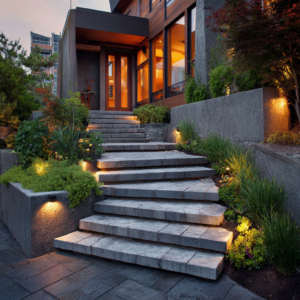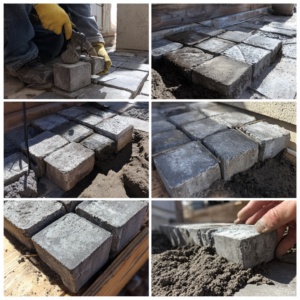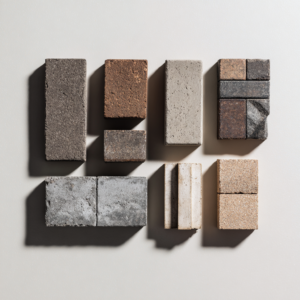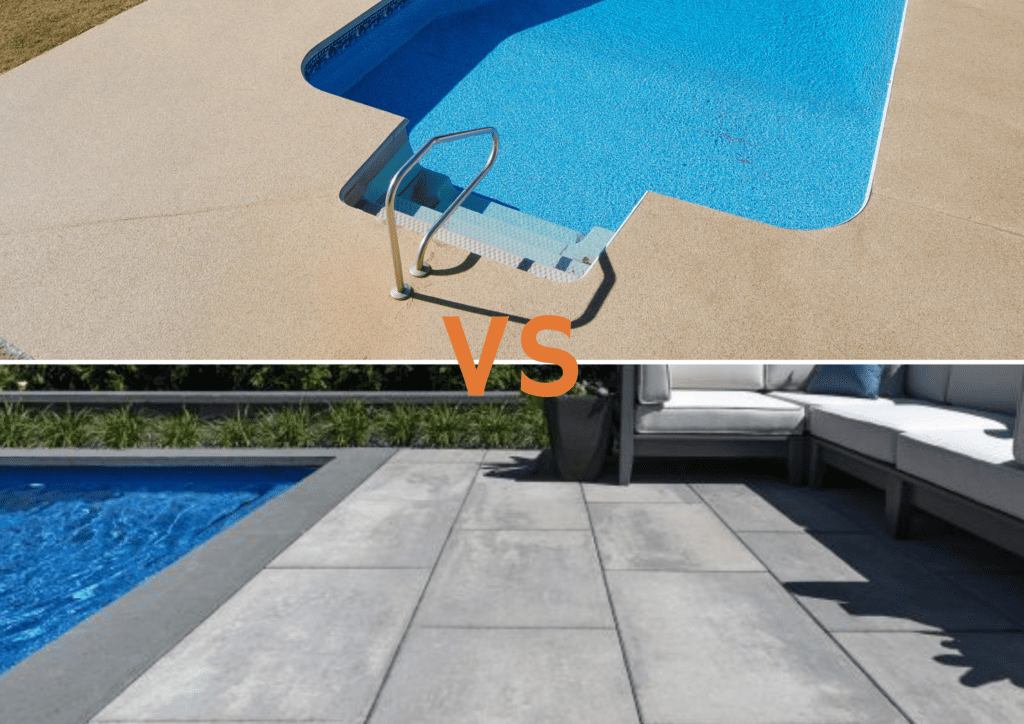
Pools are arguably the most popular hardscape element in the industry. Many homeowners design their entire project around a pool and go to great lengths to ensure things go out as perfectly as possible. So what should you choose as a poolside patio material? Should you go with pavers or concrete around the pool?
That is not a trivial choice. Pavers are a superior element overall, but concrete is still very much popular and many people decide to go for it. But what are the differences between the two approaches? Well – what fits your project better, pretty much.
That’s what we will explore in this article. First, we want to clarify what exactly a poolside patio needs to be effective and durable. Then we are going to talk about each material and their capacity to successfully meet those needs. So let’s get right to it.
Jump to:
Pavers or Concrete Around Pool: What a Poolside Patio Needs?
To answer this question, first we need to understand what exactly a pool patio needs to work properly.
An important thing to know is that, obviously, water will be splashing around it a lot. So there lies your first requirement: the patio must be able to withstand water and have an excelente drainage system.
Not only that, the material needs to be resistant to water as well. Sealing (a step you absolutely cannot skip) will help with the overall resistance, but the material must be able to work well with water and humidity.
And why is sealing so important, you might ask? Pool water usually requires some chemicals to be kept clean, with chlorine being the most popular one. These chemicals can easily damage the patio, so they need the protection of sealers to prevent that.
Maintenance is much more important in pool side patios, simply because they will always be much more exposed to humidity. This humidity is a perfect place for mold and mildew to develop, so that is also something you need to be mindful of.
So now that we have a clearer idea of what we want, we can start talking about the materials.
Concrete Around Pool
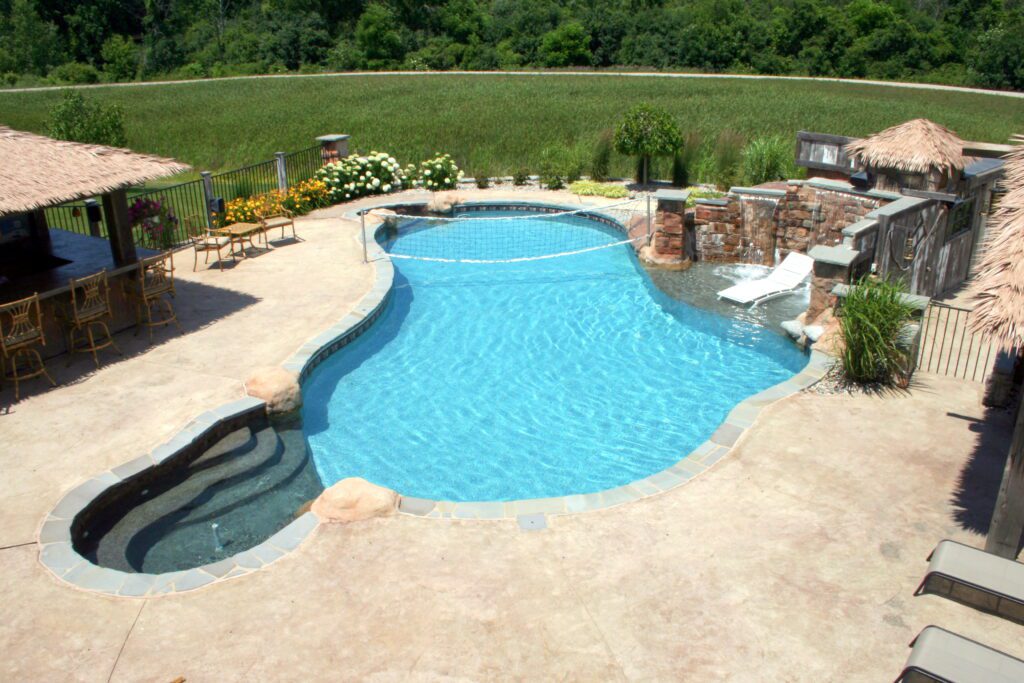
Concrete, as we mentioned, is still a very popular choice when it comes to many hardscape projects. They are relatively easy and cheap to install. But do they work as poolside patios?
They can, but not nearly as effective as pavers.
For starters, concrete patio installations have a huge problem when it comes to the long term value. Even in the best case scenario, a concrete patio will last, at most, two years before showing serious signs of wear and tear.
Drainage is abysmal with concrete patios. You want to make absolutely sure water doesn’t infiltrate it, otherwise it will destroy it completely from within. Of course, that is something incredibly hard to achieve in poolside patios.
You can use the best sealer in the world, it still won’t be effective enough in the long run. In time, concrete patios will crack and things will be a mess outside your pool.
Pavers Around Pool
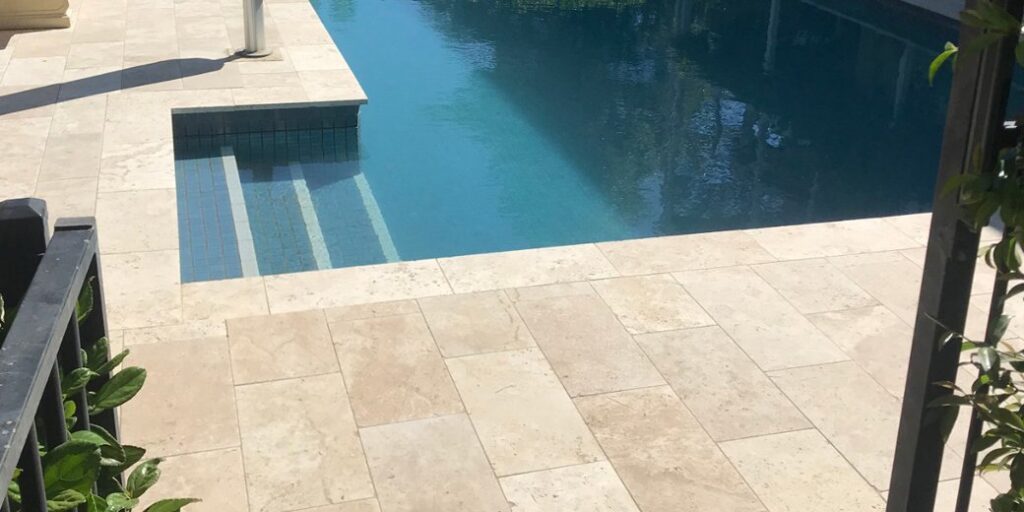
So let’s move on to pavers. And with them, things improve tremendously.
For a patio installation, a great area in the ground must be dug. This area is filled with road base, very well compacted, and finished with a layer of sand in which your pavers will be placed upon.
Pavers are famous for providing excellent drainage, especially if you go for permeable pavers, which, by the way, are an incredible option for a poolside installation.
As far as the materials go, you have several options to choose from. The best one for poolside installation are travertine and porcelain.
Travertine is a natural stone that is a perfect match for poolside installation. It can naturally absorb water and has a natural non-slippery finish that can be maintained even after sealing it.
Porcelain pavers have the advantage of being completely non-porous, which means they won’t absorb any water at all. Currently, they are considered the best paver material in the market by many professionals.
Both these materials work very well with water and can last a lifetime with proper care and maintenance!
Final Verdict
So, pavers or concrete around pool? Which is better?
Pavers, by a mile.
Concrete might be cheap upfront, but it holds no candle to the overall quality and lifespan of pavers.
With pavers, you have more options, design opportunities, aesthetic and long term value. It is an investment that will easily pay itself in the long run when compared to concrete.
We have worked in countless pool installations over our 22 years of experience here at JS Brick. Of course, we always do what the client wants, but we never endorse the use of concrete as pool surroundings because we know the terrible effects it has in the long term.
But you don’t need to take our word for it. Hire a professional hardscape contractor in your area to help you with your project, and we guarantee their opinion will be the same as ours.
Actually, if you happen to be around our area of activity, the Sarasota and Manatee counties, in FL, why not give us a call to help you?
Contact us right now at +1 941 586 9140 or email us at [email protected]. We would be happy to hear from you and help with any hardscape need you might have.

